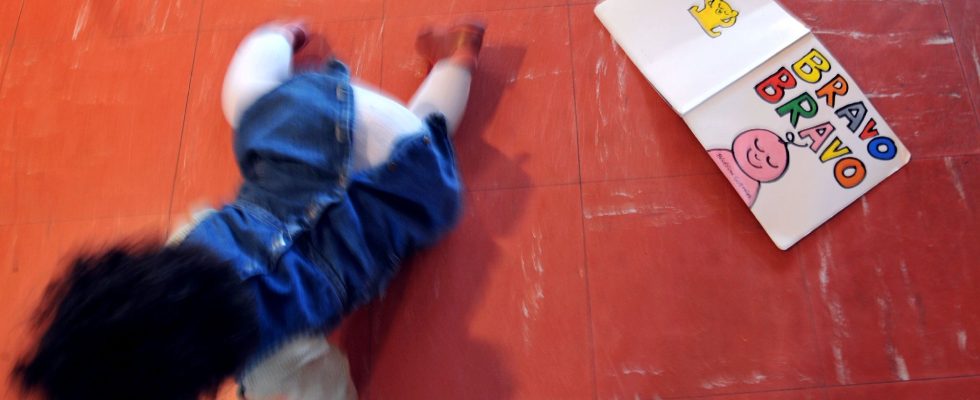Five months after the shocking report from the General Inspectorate of Social Affairs (Igas) on the prevention of mistreatment in nurseries, two investigative books have shed harsh light on the mode of operation of certain private for-profit structures. Rationed meal portions, timed care… “The price of the cradle” (Threshold), to be published this Friday, September 8, describes a “dehumanized” system based on the race for output and filling. “Babyzness” (Robert Laffont), released this Thursday, paints through 200 testimonies the same picture, that of a private sector dominated essentially by four large groups: Les Petits Chaperons rouge, Babilou, La Maison Bleue, People & Baby.
Reacting for the first time to these two publications, the new Minister of Solidarity Aurore Bergé recalled this Thursday the commitment made in the spring (after the Igas report) by the government to strengthen controls. Provided in particular by maternal and child protection centers (PMI), they are intended to become “much more systematic” and “unannounced”, she declared on BFMTV-RMC. The executive also intends to “change the law from September” to be able to go to the headquarters of large private groups, she announced.
Until now, the State did not have the right to go to the headquarters of these private companies “to say ‘now I want all the documents, I want the employment contracts, to have access to your accounts'”, he said. lamented the minister. Aurore Bergé also indicated that at the same time, the supervision rate should be increased and increase to one adult for five children, compared to six currently. “These are wishful thinking,” reacts to AFP Julie Marty Pichon, representative of the “No babies in the locker” collective. “We don’t have the arms, we don’t have the professionals, we don’t have the qualifications,” she says. The situation will be difficult “for the next three, four years”.
It won’t be enough
Private daycare centers total 80,000 places in France, or around 20% of the places available. The other establishments are municipal, associative or family crèches. Even before this speech, several players in the sector had warned against minimum measures, some warning that strengthening controls would “not be enough”.
“The implementation of a public early childhood service requires articulating quality requirements for children, price controls for families and good use of public funds, estimated the National Union of Family Associations (Unaf) This requires much firmer regulation of the place of the private for-profit sector in the field of early childhood.” For its part, the federation of (private) nursery companies urged not to “cast shame on an entire sector”, and not to draw “generalities” from “exceptions”.
The revelations about private daycare centers evoke the Orpea scandal, revealed in the book “The Gravediggers” in January 2022 and which detailed the financial embezzlement and mistreatment inflicted on residents and employees of the retirement home giant. Just as in the nursing home issue, the executive’s room for maneuver appears narrow in nurseries, as the sector is faced with a labor shortage, with almost half of establishments lacking staff.
The government already relaxed recruitment criteria a year ago, with exemptions in “a local context of shortage” allowing the recruitment of non-qualified employees. The executive aims to create 200,000 additional reception places by 2030. A figure deemed “unachievable” by a majority of players in the sector, who point out that there is already a shortage of 10,000 professionals.
